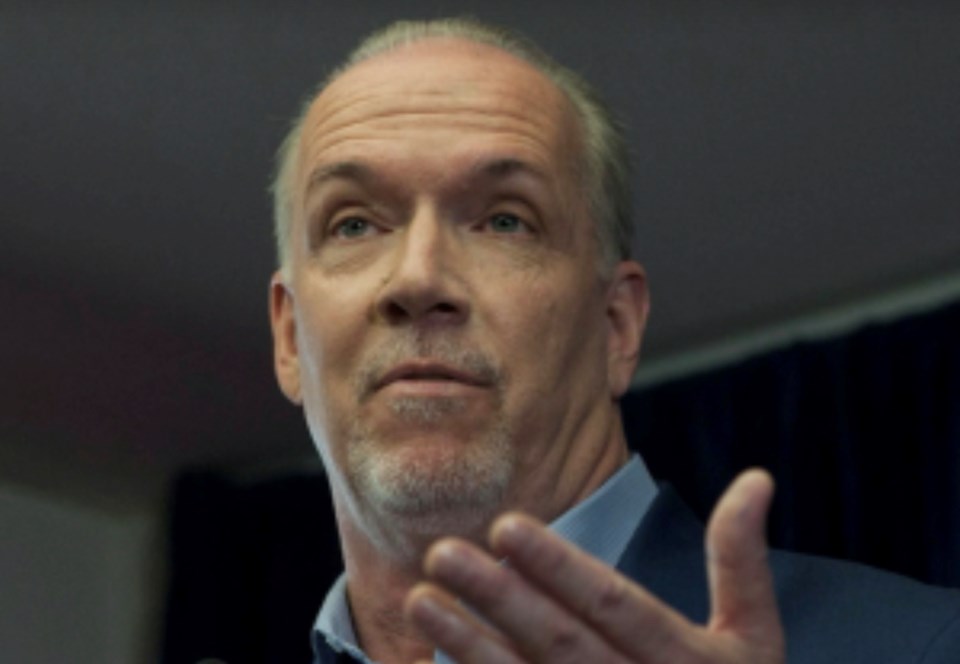Premier John Horgan is urging roughly 300,000 British Columbians who have not yet received their up to $1,000 COVID-19 benefit to have “patience” as public service employees work to correct errors in their applications.
By Feb. 5, Horgan said $900 million will have been handed out to 1.8 million residents of the province who qualified for the COVID-19 benefit. For the remaining 300,000 people still waiting for the pandemic life-line, Horgan said he understands they are “frustrated by delays.”
“But there are legitimate reasons for that. There’s an error somewhere and we’re working together to find that error,” he said from the legislature in Victoria Tuesday.
“We’ve literally begun going case-by-case to making sure that maybe a number was transposed (incorrectly) on social insurance number or the income tax information was incorrect.”
On Dec. 18, the B.C. government opened applications to the tax-free B.C. Recovery Benefit to 3.7 million British Columbians, immediately crashing the government website. Applications to the program, however, remain open until June 30, 2021.
The program offers a $1,000 benefit to families with a combined household income of less than $125,000 per year. Payments to families making more than that will be granted on a sliding scale, up to $170,000.
Individuals making less than $62,000 a year will be eligible for a one-time $500 payment, with those earning up to $87,000 are also eligible for payment along a sliding scale.
WILL A NEW ICBC REBATE FACE SIMILAR PROBLEMS?
Horgan’s comments on outstanding B.C. Recovery Benefit applications come as the government announced ICBC will issue pandemic rebate cheques to customers across the province.
British Columbia’s public auto insurance provider will pass on savings to customers in the form of a roughly $190 rebate after fewer claims during the COVID-19 pandemic left ICBC with hundreds of millions of dollars in surplus.
At a cost of $600 million, B.C. Public Safety Minister Mike Farnworth said 80% of ICBC customers will receive between $50 and $300 back, though it could come in as low as $25 and as high as $400. Drivers with multiple insurance plans between April 1 and Sept. 30 will receive rebates based on each plan, confirmed the minister.
“If you had full coverage during that time, you’ll get the full rebate,” said Farnworth.
But whereas the B.C. Recovery Benefit requires applicants to draw on their 2019 tax returns to assess their eligibility, ICBC has a detailed customer record, something Horgan said Tuesday will streamline the process when cheques start rolling out in March.
“The difference between the COVID benefit and the ICBC rebate is ICBC engages with their policy holders annually,” said Horgan. “They have a lot of information: they know where people live, they can send cheques seamlessly.”
“This will be an easier formula for ICBC to do.”


